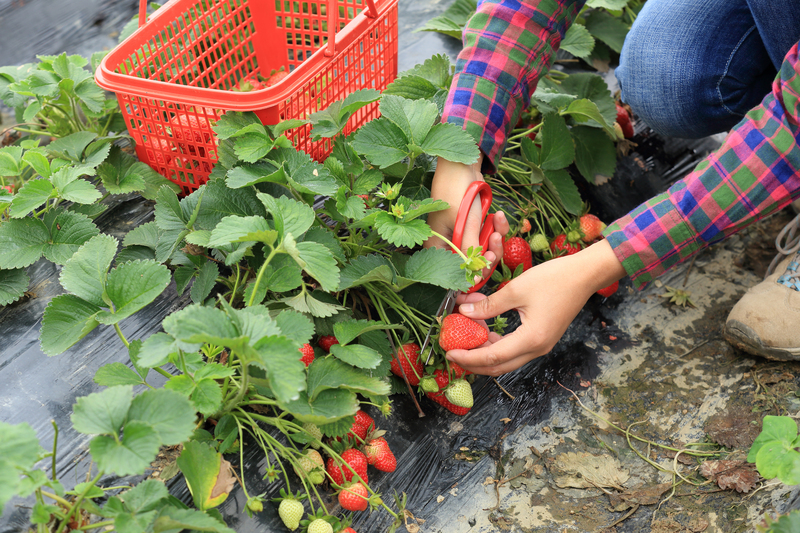The importance of material and durability in gardening glove selection
Posted on 28/03/2024
Gardening is a beloved hobby for many, providing an opportunity to connect with nature and grow beautiful plants and flowers. However, it also involves handling various tools and coming into contact with different elements such as soil, water, and thorny plants. This is where gardening gloves play a crucial role in protecting our hands from potential injuries and discomfort. But not all gloves are created equal when it comes to material and durability. In this article, we will explore the importance of selecting the right material and ensuring durability while purchasing gardening gloves.
The Role of Material in Gardening Gloves
Gloves come in a variety of materials such as leather, cotton, rubber, and synthetic materials like nylon and polyester. Each material has its own advantages and choosing the right one depends on your specific needs.
Leather gloves are known for their durability and flexibility. They provide good protection against thorns and sharp objects while allowing for dexterity to handle delicate tasks. However, they can be quite heavy and may not be suitable for hot weather.
Cotton gloves, on the other hand, are lightweight and breathable making them ideal for warm weather gardening. They provide good grip but may not offer enough protection against thorns or chemicals.
Rubber gloves are waterproof and protect against moisture, making them perfect for handling wet soil or using chemical-based fertilizers or pesticides. However, they may not be very comfortable to wear for long periods.
Synthetic gloves like nylon or polyester are a popular choice due to their versatility. They combine the benefits of both leather and cotton gloves by providing good protection against thorns as well as breathability. They also come in a range of colors, making them a stylish option for gardeners.

The Significance of Durability
Selecting durable gardening gloves is essential because they need to withstand constant wear and tear. Gardening tasks involve digging, weeding, pruning, and other activities that can put a strain on gloves. Therefore, investing in a sturdy pair of gloves can save you money in the long run.
One of the key factors to consider while assessing durability is the stitching. Look for gloves with reinforced double or triple stitching as they are less likely to come apart at the seams. Another important aspect is the material of the glove itself. Leather and synthetic materials tend to be more durable compared to cotton or rubber.
The Pros and Cons
As with any product, there are advantages and disadvantages depending on the material and durability of gardening gloves. Leather gloves offer excellent protection and durability but can be heavy and uncomfortable in warm weather. Cotton gloves are lightweight and perfect for warm climates but may not provide enough protection. Rubber gloves are waterproof and protect against chemicals but may not be very comfortable. Synthetic gloves offer a balance of protection, breathability, and style but may not be as durable as leather gloves.
Tips for Selecting the Right Gardening Gloves
1. Know your gardening needs - Consider the type of tasks you will be doing while wearing gloves to determine which material would best suit your needs.
2. Check the stitching - Inspect the stitching on the gloves before purchasing to ensure it is strong and reinforced.
3. Choose proper fitting - Make sure the gloves fit snugly but not too tight to allow for movement and comfort.
4. Look for a warranty - A good quality gardening glove should come with a warranty to guarantee durability.
5. Consider hand protection - In addition to materials, some gloves come with additional features such as padded palms or extended cuffs for added protection.
The Takeaway
In conclusion, selecting the right material and ensuring durability in gardening gloves is crucial for both comfort and safety while tending to your garden. Consider the tasks you will be doing and choose a material that suits your needs, check for strong stitching and proper fitting, and opt for a warranty if possible. With the right gloves, you can enjoy gardening without worrying about potential injuries or discomfort.
Pros:
1. Protects hands from potential injuries and discomfort.
2. Provides dexterity while handling delicate tasks.
3. Waterproof options available for wet or chemical-based gardening tasks.
4. A range of materials to suit individual needs.
5. Stylish options available in synthetic materials.

Cons:
1. Leather gloves may be heavy and uncomfortable in warm weather.
2. Cotton gloves may not provide enough protection against thorns or chemicals.
3. Rubber gloves may not be very comfortable for long periods.
4. Synthetic gloves may not be as durable as leather gloves.




